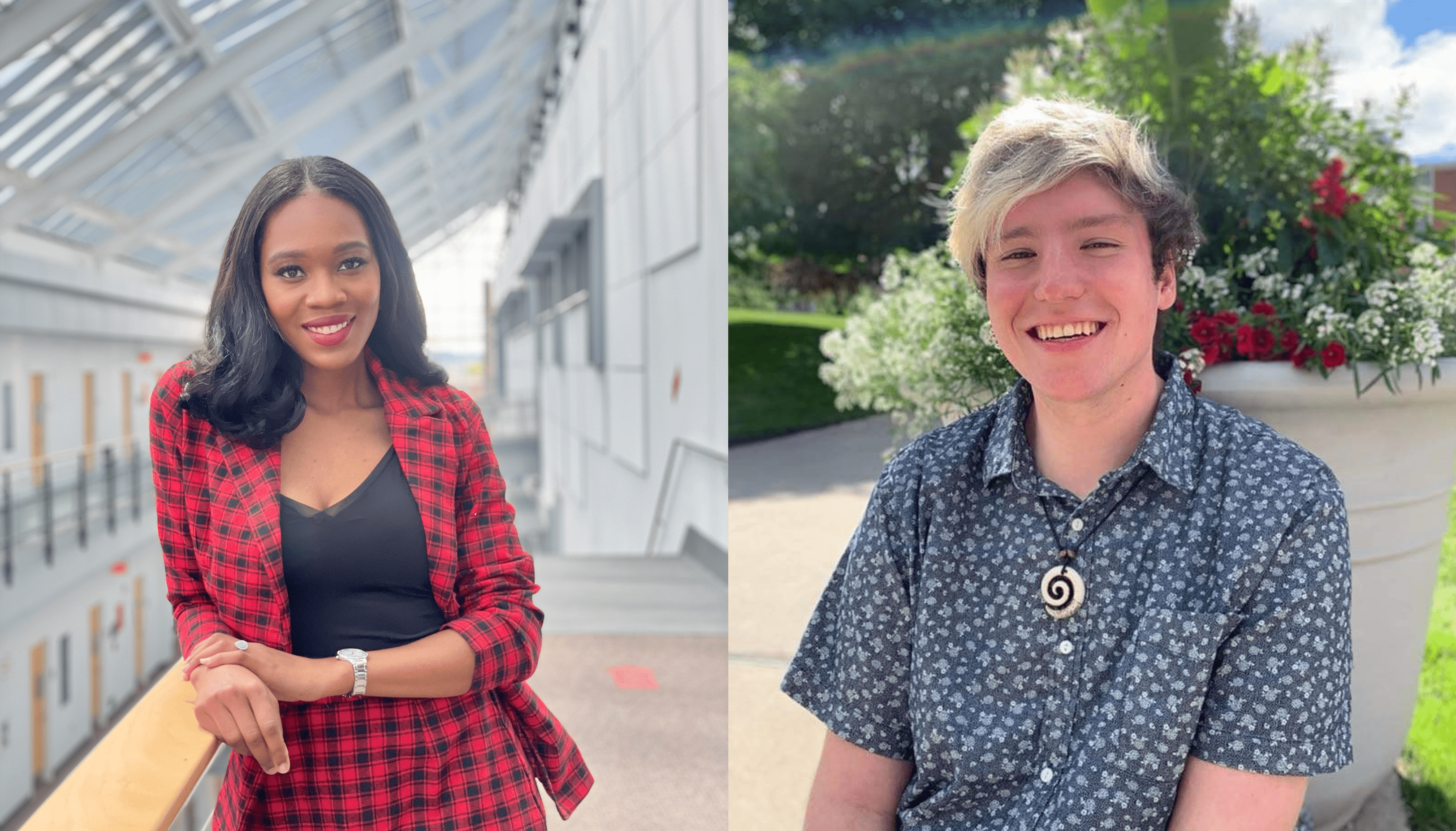By Regina Rossello
Chunyu Wang, professor of biological sciences, chemistry, and chemical biology at Rensselaer Polytechnic Institute (RPI), has dedicated his research to improving our understanding of diseases including Alzheimer’s and cancer so that we can achieve better outcomes for the millions of people who are diagnosed each year. Doctoral students Anqesha Murray and Nathan Smith have also made this their mission and are working in his lab where they investigate the structural mechanisms of these diseases.
A native of Rochester, New York, Murray received an associate’s degree in liberal arts and biology before graduating with a bachelor’s degree in biology from the University of Rochester. Before coming to RPI, she was a National Institutes of Health Post-Baccalaureate Research Education Program Scholar in Brown University’s Department of Molecular Microbiology and Immunology. At RPI, she studies protein-protein interaction in Alzheimer’s disease and neuroinflammation.
Originally from Bradford, Pennsylvania, Smith earned a bachelor’s degree in biology from Mount Aloysius College, with pre-health and molecular biotechnology specializations, before pursuing a Ph.D. at RPI. “RPI offered the community I liked at small colleges, but also has the advanced technology and equipment I would expect at a much larger institution.” His research focuses on better understanding tau protein aggregation, a common characteristic of Alzheimer’s, and testing compounds to prevent it. He also experiments with compounds to reduce cancer risk.
In addition to conducting research, both Murray and Smith have taken advantage of the entrepreneurial opportunities and resources offered by the Paul J. ’69 and Kathleen M. Severino Center for Technological Entrepreneurship. They won first place in the Change the World Challenge, a biannual competition funded by Rensselaer alumnus Sean O’Sullivan ’85 that challenges students to turn their world-changing ideas into viable business concepts. They also earned third place in the Rensselaer Business Model Competition.
Now, after participating in the National Science Foundation Innovation Corps program, they are launching AduCare, a company that offers a cognitive decline tracking application, in collaboration with Keith Fraser, RPI alumnus and senior lecturer of biological sciences.
While they are passionate about research and discovery, both Murray and Smith have found it beneficial to remain well-rounded. Smith, for instance, is not only a scientist, but a poet as well. He recently published his first book, Cotton Candy Sun. “Don’t be afraid to take risks,” said Smith, offering advice to those who aspire to pursue graduate studies. “Put yourself out there — sign up for that club or event — it might change your life. Taking care of yourself is really the best investment at the end of the day and in the end, your research will be better for it.”
Murray reinforces this advice. “Diversify your skills,” she said, “Seek other opportunities that will expand your network and expose you to new challenges and different ways to tackle them.”




